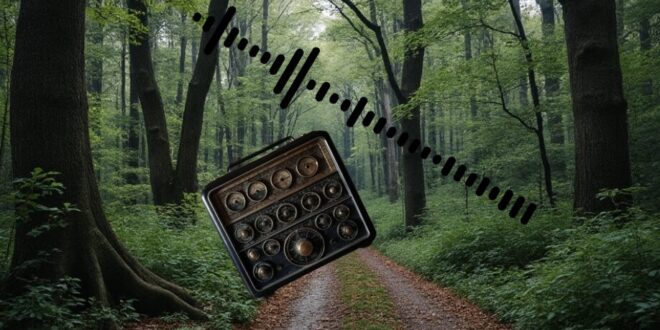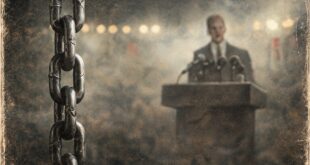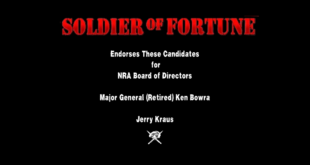COMMENTARY by Susan Katz Keating
Something strange crackled through the shortwave radio bands coming out of Russia this summer. The long-dormant station UVB-76 – known to old intelligence hands as the “Doomsday Radio” – buzzed to life on June 4, and began broadcasting again. The transmission was cryptic. The voice read two nonsense codewords: “azotobak” and “osholin.” To the untrained ear, it sounded like gibberish. To me, it sounded like Russia whispering in theatrical tones: Be afraid! Be very afraid! And I had to laugh.
Read More: Havana Syndrome and the ‘Moscow Signal’
The timing of the broadcast wasn’t random. That same day, U.S. President Donald Trump spoke on the phone with Russian President Vladimir Putin. The coincidence is not a coincidence.
What does it mean? The nonsensical transmissions from UVB-76 are not about battlefield coordination. The station is not a red button linked to a nuclear command bunker. It’s a bluff. A mood-setter. A perfectly timed mind-game meant to stir fear and speculation in the West. Russia doesn’t need to fire a missile to get your attention. All it has to do is send ghost voices through the static.
In the days since the transmission, I’ve been contacted by several trusted, concerned sources – analysts, former intelligence operatives, and even a few old Cold Warriors who have followed this signal since it first emitted its eerie buzz decades ago. They warn, in urgent tones: “The big one is coming.”
I beg to differ.
I understand the alarm. The station’s history lends itself to apocalyptic thinking. Since the fall of the Soviet Union, UVB-76 has transmitted an endless, monotonous buzz—interrupted now and then by unintelligible words, cryptic numbers, and codewords that no one ever explains.
It was born in the Cold War and has never quite left it. Each time the station stirs to life, it breathes oxygen into one of the longest-running conspiracy theories of the post-Soviet era: that this station is a dead man’s switch, a ghostly alarm wired to nuclear revenge.
That’s the myth. The reality is more prosaic, and more insidious: UVB-76 is a psychological weapon. It is meant not to destroy, but to distract, to unsettle, to make you pause and wonder whether the end is near. Any yet, for all the times it’s crackled into action, how often has it presaged a nuclear strike? It’s a confidence game cloaked in static.
Putin’s playbook has always leaned on ambiguity and fear. He doesn’t need to win on the battlefield if he can keep you frozen in suspense. He thrives in the fog. And UVB-76 is pure fog; cold, calculated, and oddly poetic.
So yes, tune in if you can. Listen if you must. But don’t be fooled. The station isn’t warning of the big one. The station is the warning – a spectral trick designed to keep us focused on decoding the exaggerated stage whispers.
It’s funny in a PsyOp sort of way, clumsy and obvious. Pay it no mind. The real action is elsewhere.
Susan Katz Keating is the publisher and editor in chief at Soldier of Fortune.
 Soldier of Fortune Magazine The Journal of Professional Adventurers
Soldier of Fortune Magazine The Journal of Professional Adventurers






